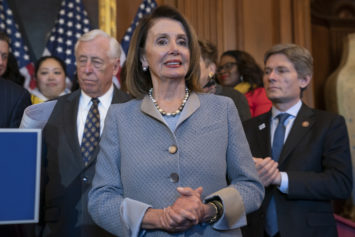There are 600,000 physicians in America who care for the 48 million seniors on Medicare. Of the $716 billion that the Affordable Care Act cuts from the program over the next ten years, the largest chunk—$415 billion—comes from slashing Medicare’s reimbursement rates to doctors, hospitals, and nursing homes. This significant reduction in fees is driving many doctors to stop accepting new Medicare patients, making it harder for seniors to gain access to needed care. Here are a few of their stories.
Paul Wertsch is a primary physician in Madison, Wisconsin. In 1977, he and his two partners invested $500,000 of their own money and opened their own practice, the Wildwood Family Clinic, on the east side of town. Wertsch’s clinic is popular with the seniors who go there, but over time, Medicare’s fee schedule has made it harder and harder on the practice.
Wertsch billed Medicare $217 to care for a Medicare patient with a sinus infection whose appointment ran late, because the patient required more time. Medicare reimbursed the clinic for $54.38. Later in the day, a younger patient with the same sinus infection, requiring half the time, was charged the same $217. But his private insurer reimbursed the clinic for twice the amount of Medicare: $108.04.
“I love taking care of Medicare patients,” Wertsch told the Capital Times, a progressive paper in Madison. “But every time we treat them we have to dig into our wallets. What kind of business model is that?” Today, Medicare patients represent one-quarter of Wildwood’s practice overall, and as much as 70 percent for some of the clinic’s veterans, like Wertsch. In 2011, Wildwood decided to stop accepting new patients from the Medicare program.
Wildwood was the first clinic in the Madison area to stop taking new Medicare patients. But, nationally, doctors like Wertsch are increasingly common.
Joseph Shanahan is a rheumatologist in Raleigh, North Carolina. Shanahan told his local ABC affiliate, WTVD, that he was one of the few rheumatologists left in the Research Triangle area who accepted Medicare patients. “The reimbursement is so low [with Medicare]—in some cases 60, 80 dollars—it costs you more to get a plumber to come to your house than to get a rheumatologist to come to the hospital,” he said.
This spring, Shanahan decided to stop taking new Medicare patients. “Not by choice,” said Shanahan, “but I’ve got to pay off the business loan…
Read more: Forbes


